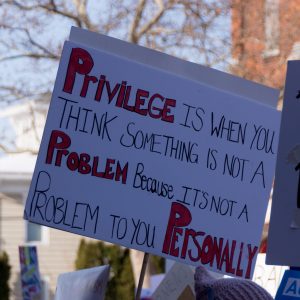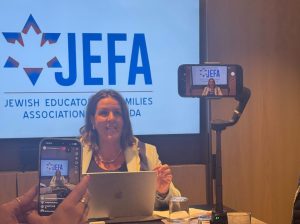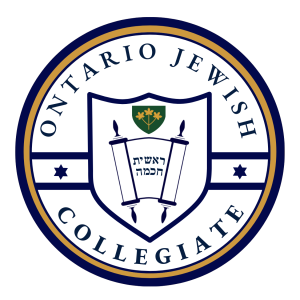 TORONTO — When Batya Feigenbaum, right, was born, she suffered a spinal cord injury so severe that doctors offered her parents little hope that she would live a normal life, let alone survive her first night.
TORONTO — When Batya Feigenbaum, right, was born, she suffered a spinal cord injury so severe that doctors offered her parents little hope that she would live a normal life, let alone survive her first night.
Today the ebullient 23-year-old is a grade 9 and 10 Jewish studies teacher at the Orthodox girls’ high school Tiferes Bais Yaakov who uses a motorized scooter – and, for brief periods, crutches – switching to a wheelchair for Shabbat.
In the classroom, Feigenbaum doesn’t see her disability as an issue. Although it’s difficult for her to write on the chalkboard, because her walking is limited, she says she uses her challenge as a “tool,” getting students to write on the board instead.
 She also has students hand out papers for her, and said that after the first few days of the school year – once they see that she is comfortable with her disability – they become comfortable with it too.
She also has students hand out papers for her, and said that after the first few days of the school year – once they see that she is comfortable with her disability – they become comfortable with it too.
Her birth injury in the course of an emergency caesarian section at a hospital in Israel initially left Feigenbaum as a quadriplegic, not breathing on her own. She began to undergo therapy within days of her birth, and the family moved to Toronto when she was two years old to pursue new treatments that were not available in Israel at the time.
In Israel, she recovered movement in her upper body, but it wasn’t until she came to Canada with her American-born parents and her siblings that she gained feeling in her legs and started crawling at age three, six months after beginning experimental therapy.
Feigenbaum’s work day is divided into morning classes and afternoons working as the school secretary. She is also running student council activities to fill in for a co-worker until Pesach.
Her ability to multi-task is evident, as she tends deftly and kindly to the needs of a student who is writing a test by herself, barely interrupting the flow of her interview with The CJN.
Feigenbaum – whose father, Rabbi Yitzchak Feigenbaum, started Tiferes Bais Yaakov in 1999 – is a graduate of Toronto’s Beth Jacob High School for Girls and Me’ohr Bais Yaakov Teachers Seminary in Jerusalem, which she attended for a year after high school.
“I love it,” Feigenbaum says of her teaching career. “I can’t imagine doing anything else.
“You’re making a difference in someone’s life.”
The daughter of two educators – her mother Lani teaches kindergarten – Feigenbaum said her parents never pushed her to enter the field. “This is who I am,” she said.
Although she sees herself as “very easygoing” in the classroom, she said she always starts out “tough” at the beginning of the year.
“In certain aspects, I’m strict,” she said. “I give [students] a quiz every class – just five questions, to review.”
That doesn’t always go over well at first, Feigenbaum admitted, but with time, she believes her students appreciate that it helps them learn the material.
Because she is “close enough in age [to her students]… that I’m still sort of cool,” Feigenbaum said it’s easy to have a good relationship with her students.
“I think it’s a balance. If the girls respect you, you don’t need to be extremely tough with them.”
While they know that she’s “their friend,” she said, “there’s still that distance, because I’m their teacher.”
Feigenbaum – who grew up doing household chores just like her siblings, and who got her driver’s licence at 17 (to operate a vehicle with hand controls) – is being honoured this week at a fundraising dinner for DANI, an organization that helps young adults with special needs. She has been honoured in a similar way twice before.
She said that she agreed to be honoured, despite some discomfort with the idea, because it can raise awareness about the abilities of people with disabilities.
A lesson from the teacher: “I think that life is really what you make of it. There’s a reason for everything. I very strongly believe that… You can become bitter, sad and angry, or rise above it and make the most of it.”






